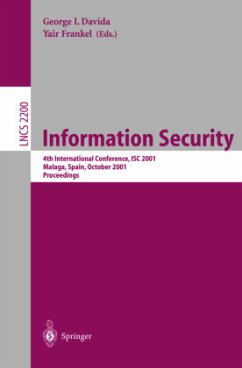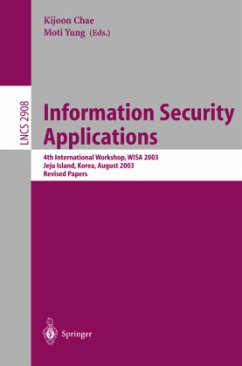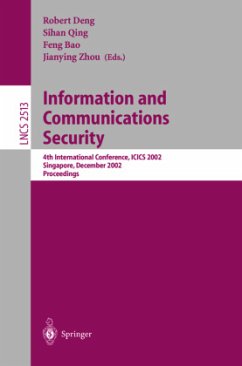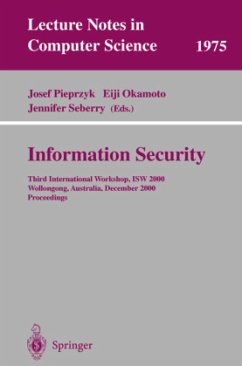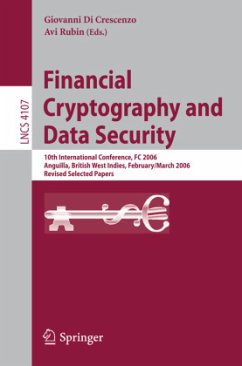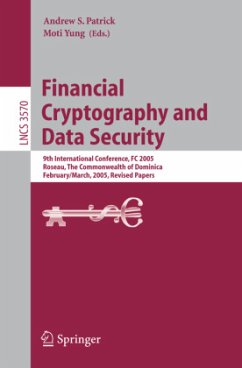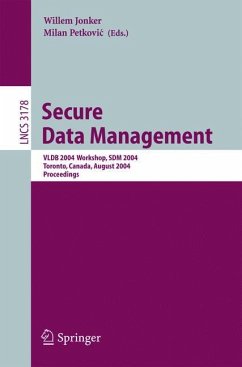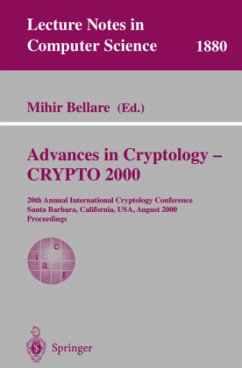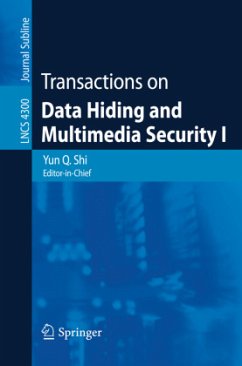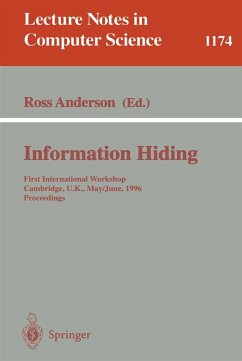
Information Security
6th International Conference, ISC 2003, Bristol, UK, October 1-3, 2003, Proceedings
Herausgegeben: Boyd, Colin; Mao, Wenbo

PAYBACK Punkte
20 °P sammeln!
The 2003 Information Security Conference was the sixth in a series that started with the InformationSecurity Workshopin 1997.A distinct feature of this series is the wide coverage of topics with the aim of encouraging interaction between researchers in di?erent aspects of information security. This trend continued in the program of this year's conference. There were 133 paper submissions to ISC 2003. From these submissions the 31papersintheseproceedingswereselectedbytheprogramcommittee,covering a wide range of technical areas. These papers are supplemented by two invited papers;athirdinvitedta...
The 2003 Information Security Conference was the sixth in a series that started with the InformationSecurity Workshopin 1997.A distinct feature of this series is the wide coverage of topics with the aim of encouraging interaction between researchers in di?erent aspects of information security. This trend continued in the program of this year's conference. There were 133 paper submissions to ISC 2003. From these submissions the 31papersintheseproceedingswereselectedbytheprogramcommittee,covering a wide range of technical areas. These papers are supplemented by two invited papers;athirdinvitedtalkwaspresentedattheconferencebutisnotrepresented by a written paper. We would like to extend our sincere thanks to all the authors that submitted papers to ISC 2003, and we hope that those whose papers were declined will be able to ?nd an alternative forum for their work. We are also very grateful to the three eminent invited speakers at the conference: Paul van Oorschot (Carleton University, Canada), Ueli Maurer (ETH Zur ¨ ich, Switzerland), and Andy Clark (Inforenz Limited, UK). We were fortunate to have an energetic team of experts who took onthe task of the program committee. Their names may be found overleaf, and we thank them warmly for their considerable e?orts. This team was helped by an even larger number of individuals who reviewed papers in their particular areas of expertise. A list of these names is also provided, which we hope is complete.





